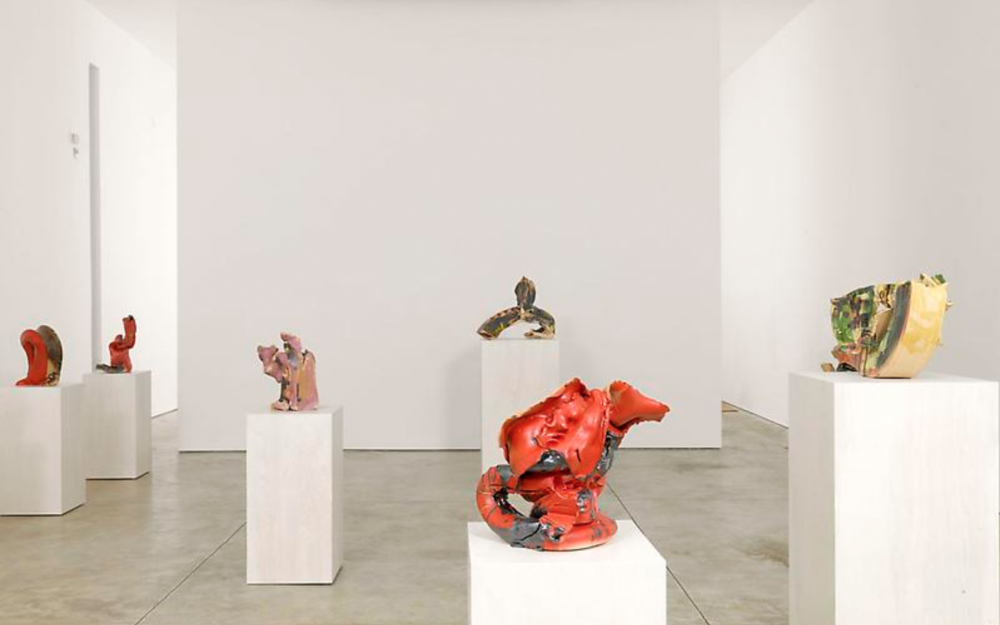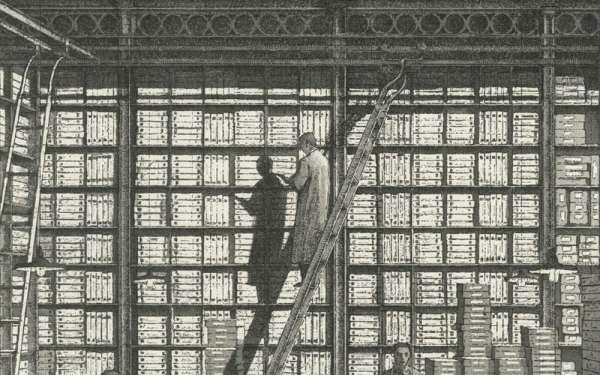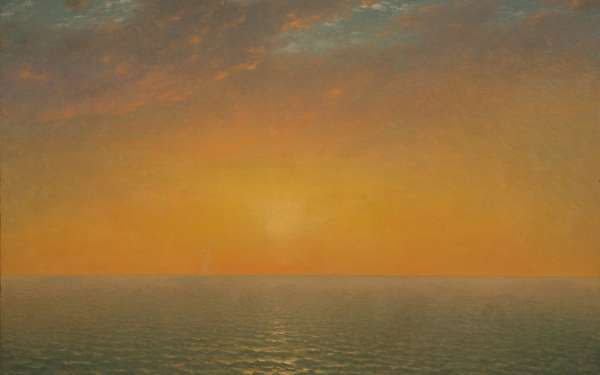Review: Dan Tague: “May I Have A Revolution Please”
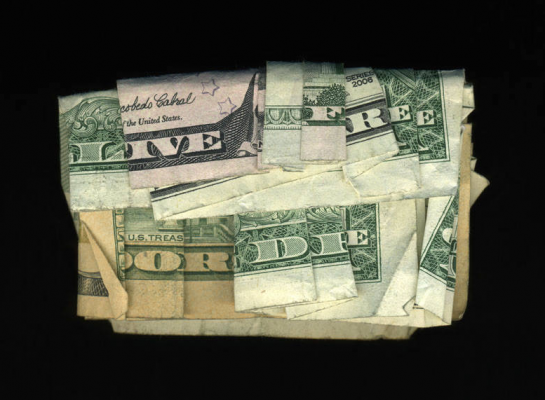
Dan Tague, Live Free or Die, 2011. Archival inkjet print on rag paper. Courtesy the artist and Jonathan Ferrara Gallery, New Orleans.
Dan Tague
Jonathan Ferrara Gallery
400a Julia Street
April 22—June 1, 2011
For years, Dan Tague has been folding US currency so the rearranged letters spell out political messages. The bills are stunning as singular art objects, or so we imagine. We never actually see them, but rather their distorted simulacrum through oversized photographs, adding an extra degree of conceptual separation from the already elusive subjects: money and power. With phrases like “live free or die” and “save the coast,” Tague comments on the American practice of deferring civil rights and responsibilities in favor of dollars. With his newest set of money images at Jonathan Ferrara Gallery, Tague segues into a political conversation on the cost of war.
This conversation is laden with manipulated images of Americana—a juxtaposition of John Wayne and Warhol’s Elvis, the Statue of Liberty with both arms raised. A set of three “designer” baseball (riot) bats is branded with fashion logos and riddled with rusty nails. Tague alters authentic World War II-era and Chinese communist posters by sketching in cartoony elements such as cell phones in the hands of the Chinese revolutionaries.
Tague’s artist statement and folded-money images seem to criticize capitalism as the root cause of war, hinting at our present-day situations in Iraq and Afghanistan, yet the majority of pieces in this show reference a much different point in our history. What at first feels like a pointed comparison between our modern-day dollar-driven war mongering and the so-called valiant deeds of the “Greatest Generation” soon becomes a collection of glib political one-liners.
For example, in the midst of the iconic American imagery, the communist propaganda poster with its cell phone-clad revolutionaries stands out, raising the question: Is Tague comparing the whimsies of the Twitter revolution with the foreign missions of the past or examining the byproducts of corporate globalization? In the absence of further visual evidence, Tague’s Chairman Mao merely serves as an easy and kitschy stand-in for “politics.”
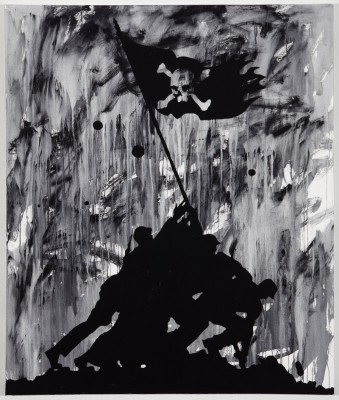
Dan Tague, Corporate Realty, 2011. Oil and acrylic on canvas. Courtesy the artist and Jonathan Ferrara Gallery, New Orleans.
Tague’s clever titles aid in bridging the conceptual gap, but the images cannot stand alone in the absence of their monikers. Take the wall-sized painting Corporate Realty for instance, which depicts the silhouette of American soldiers raising the flag at Iwo Jima. Tague replaces the American flag with a pirate's skull and crossbones. Without reading the placard it would be nearly impossible to insert Tague’s critique of the cost of war both in terms of dollars and lives lost for the sake of big business. And again, the question remains as to whether Tague’s target is the past, present, war, just America, or even capitalism in general, as World War II was significantly more complicated than a means to a capitalist end. For the grand cornerstone of the show, it seems like a missed opportunity.
Political art used to invoke catharsis. When I look at a painting by Leon Golub, I’m immediately filled with all of the emotion of being confronted with the horrible reality of the human condition. Even if Tague’s point is the deterioration of political discourse in this country, when I look at a spray-painted piece of cardboard with a price tag of $300 (unframed), I’m left wondering if the irony is intentional. I’m also distinctly aware that my reaction is purely cerebral and not at all guttural. “May I Have A Revolution Please” is as passive as its title, recalling the ease of ordering at a fast food restaurant. It serves as a meditation on commodity and complacency, but perhaps not in the ways in which Tague intended.
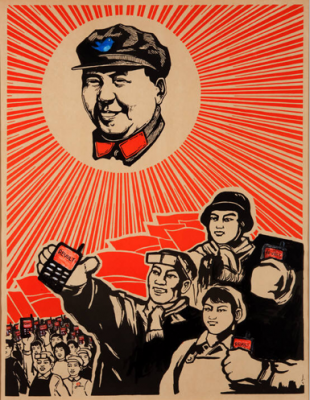
Dan Tague, The Revolution Will Be Tweeted, 2011. Acrylic and pen on original 1967 communist poster. Courtesy the artist and Jonathan Ferrara Gallery, New Orleans.

